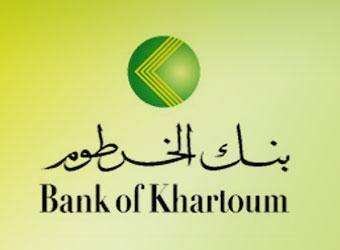Sudanese bank says dealings with Saudi Arabia unaffected
March 11, 2014 (KHARTOUM) – The general manager of the Bank of Khartoum (BoK) Fadi Salim Al- Faqih said that the bank’s dealings with its counterparts in Saudi Arabia are continuing as normal especially with the National Commercial Bank (NCB).
 Al-Faqih pointed out that they are seeing an increase in the volume of wire transfers from expatriates through BoK which was the only bank not covered by a recent Saudi decision to bar dealings with Sudanese banks.
Al-Faqih pointed out that they are seeing an increase in the volume of wire transfers from expatriates through BoK which was the only bank not covered by a recent Saudi decision to bar dealings with Sudanese banks.
Last month the Sudanese government acknowledged reports that a number of Saudi and European banks took a decision to stop dealing with Sudanese banks and attributed it to pressure by the United States.
But the Central Bank of Sudan (CBoS)issued a statement saying that the move was driven by routine banking procedures undertaken by the financial institutions.
There was no comment from Saudi Arabian Monetary Agency (SAMA) and it is not clear if the latter issued the directive or if it was decision by individual banks.
Al-Faqih told Sudan state media that BoK offers its customers the ability to receive their wire transfers in any currency for no fees.
He underscored BOK’s desire to expand its relations with correspondents abroad this year in response to requests by its customers.
The bank’s top officer revealed that BOK’s main strategic project which they intend to implement this year is creating an investment portfolio to finance projects in the agricultural sector in line with the government’s plan to boost exports.
He praised the decision of the finance ministry to compel government employees to deposit their salaries within the banking sector saying it helped the banks keep track of individual incomes to better service them.
“The decision serves as a baseline that would benefit the bank’s plan to provide banking products and services to the government sector so that employees can take advantage of the banking services whether microfinance or large funding,” he said.
In 2011, the U.S. Department of the Treasury’s Office of Foreign Assets Control (OFAC) removed BoK from a blacklist of Sudanese entities and individuals subjected to economic sanctions since 1997.
This allowed the bank to ask the return of blocked funds and assets and resume its activities with the US financial institutions.
At the time a US official said the decision is motivated by the fact that it is no longer under the Sudanese government’s control.
Following its privatization in 2002, the Bank of Khartoum is controlled by Dubai Islamic Bank which holds 60% of its shares since 2005. The bank was among 163 Sudanese entities included in the OFAC’s list.
US sanctions dating back to the Clinton administration in 1997 bars any financial dealings with Sudan or institutions owned by Khartoum which complicates Sudan’s access to international financial markets and US dollars.
(ST)
